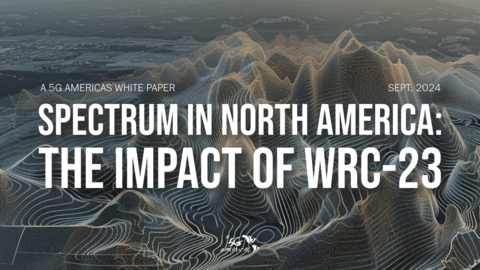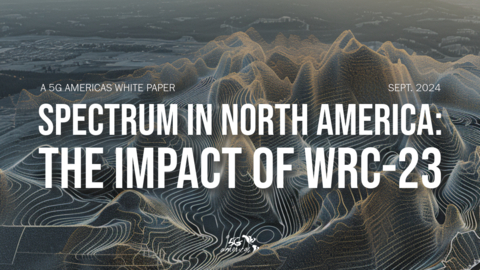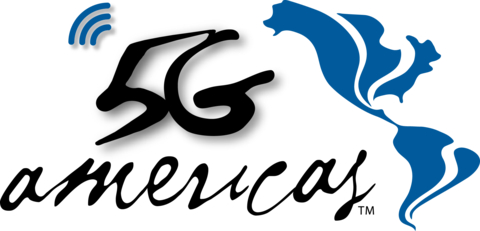BELLEVUE, Wash.--(BUSINESS WIRE)--Key outcomes from the International Telecommunication Union’s World Radiocommunication Conference 2023 (WRC-23) in November 2023 highlighted the spectrum challenges for the North American wireless cellular industry. 5G Americas, the voice of 5G and beyond for the Americas, today announced the publication of its latest white paper, ‘Spectrum in North America: The Impact of WRC-23’, which studies the challenges and optimal solutions for advancement of 6G in North America.
“The spectrum identified for international mobile telecommunications in North America is heavily encumbered, with significant challenges related to coexistence and relocation of incumbent services, particularly in bands like 3.1-3.45 GHz and 7.125-8.4 GHz,” said Viet Nguyen, Vice President of PR and Technology at 5G Americas.
WRC-23 highlighted the need for new exclusive use of internationally harmonized spectrum bands to strengthen the region's leadership in 5G and future 6G technologies. Decisions made at WRC-23 are pivotal for North America, affecting key spectrum bands such as 3.3-3.4 GHz, 3.6-3.8 GHz, and 10-10.5 GHz, which are essential for enhancing capacity, coverage, and overall network performance.
Additionally, upper mid-band frequencies are seen as the most promising for economical, wide area 6G deployments. The upper mid-band spectrum, particularly within the 7.125-15.35 GHz frequency range, is identified as best suited to meet future mobile network demands due to its capacity and coverage trade-offs.
Despite some ITU advancements, the United States faces a significant challenge with its current mid-band spectrum allocation, which trails behind global competitors. According to leading wireless associations, the U.S. is currently ranked 13th out of 15 leading global markets for licensed mid-band spectrum. Without timely action, the U.S. could experience a critical shortfall of up to 520 MHz compared to leading nations by 2027.
“Spectrum is the oxygen for our industry and North America could be in a deficit soon compared to other countries in the world. Collaboration between governments, industry, and international bodies is essential to ensure that the spectrum identified at WRC-23 is available under suitable regulatory conditions,” said Brian Daly, AT&T Fellow and AVP of Standards & Industry Alliances and working group leader on the white paper.
“As cellular connectivity demands increase, industry stakeholders must collaborate to maintain North America's leadership in wireless technology. Securing ample spectrum is about investing in North America’s future and meeting the growing needs of consumers and businesses,” said Alexander Brock, Senior Vice President Strategy and Partnership, Rogers.
“It is crucial to prepare for WRC-27 by engaging in studies and regulatory planning to secure spectrum for future technologies, ensuring North America’s continued leadership in global telecommunications,” said Karri Kuoppamaki, Senior Vice President, Advanced and Emerging Technologies, T-Mobile.
About 5G Americas: The Voice of 5G and Beyond for the Americas
5G Americas is an industry trade organization composed of leading telecommunications service providers and manufacturers. The organization’s mission is to facilitate and advocate for the advancement of 5G and beyond to 6G throughout the Americas. 5G Americas is invested in developing a connected wireless community while leading 5G development for all the Americas. 5G Americas is headquartered in Bellevue, Washington. More information is available at 5G Americas’ website, LinkedIn, and X (formerly Twitter).
5G Americas’ Board of Governors Members include Airspan Networks Inc., Antel, AT&T, Ciena, Cisco, Crown Castle, Ericsson, Liberty Latin America, Mavenir, Nokia, Qualcomm Incorporated, Rogers Communications, Samsung, T-Mobile US, Inc., and Telefónica.




